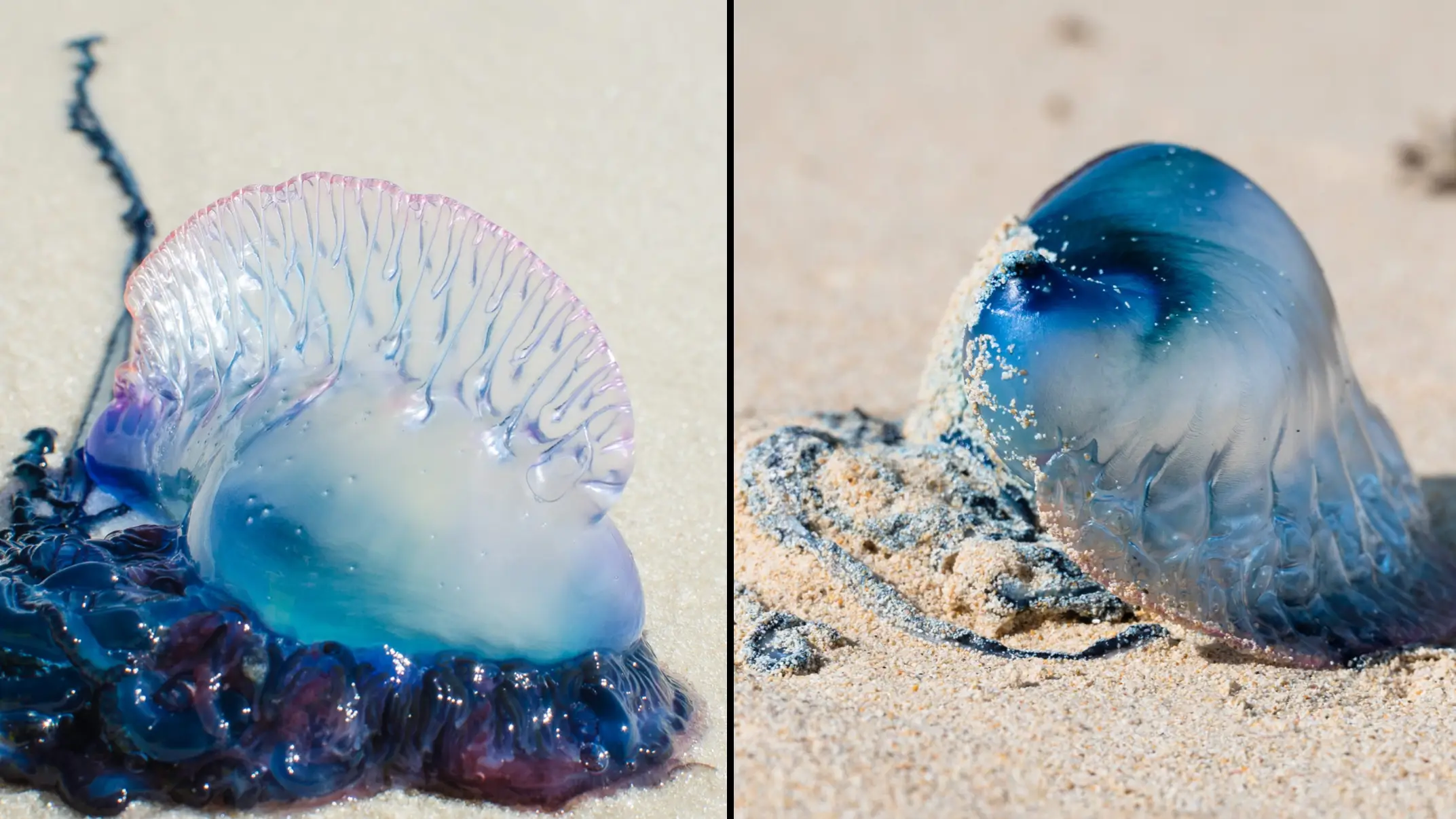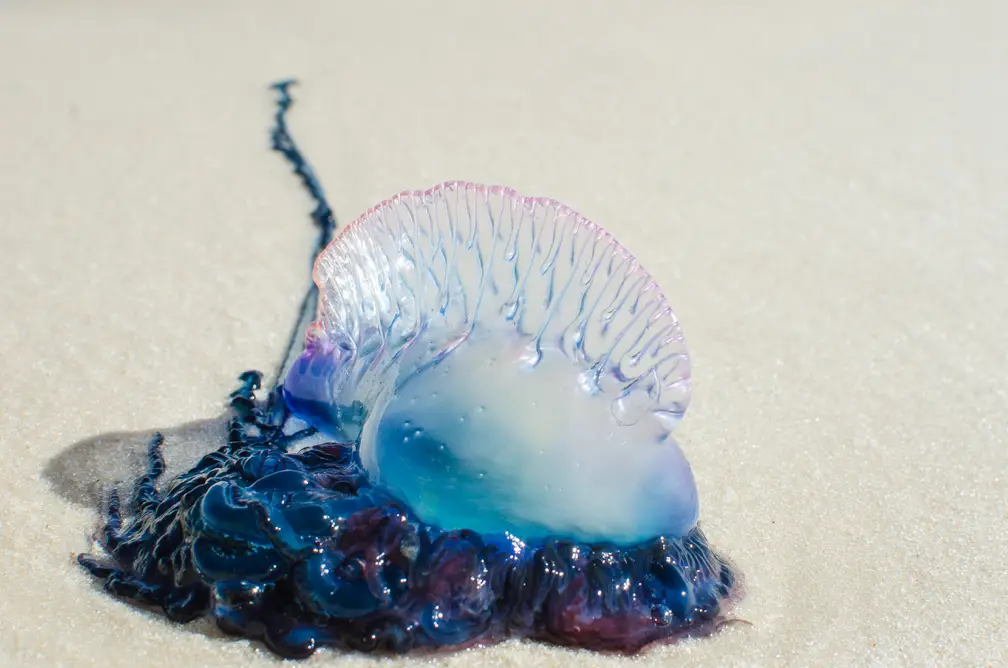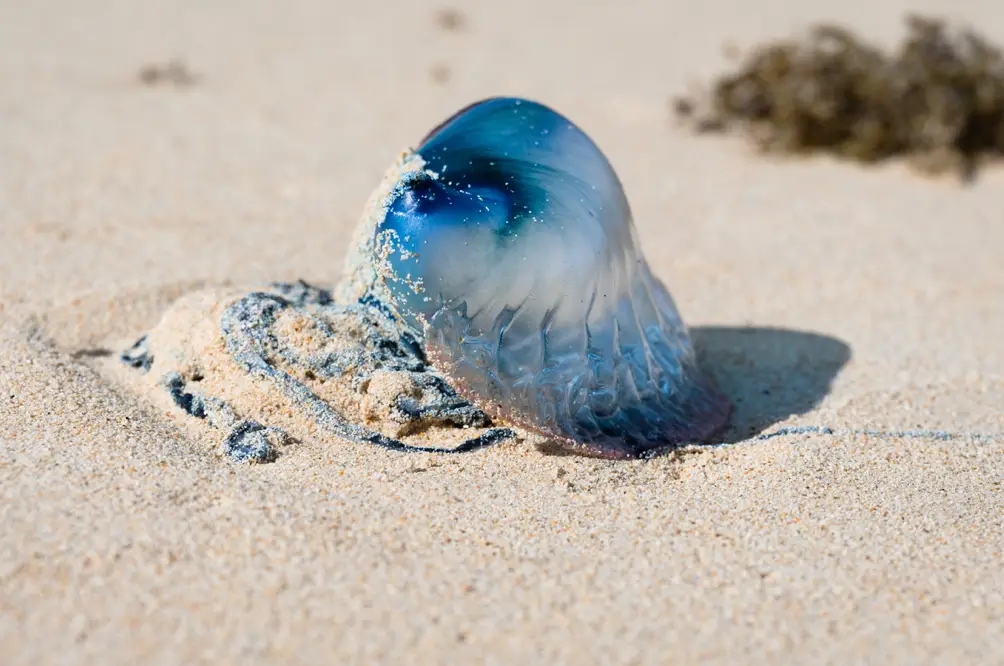
British holidaymakers are being warned about a 'fearsome predator' that recently washed up on a popular UK beach.
While it may not feel like it, we are in the midst of summer right now in the UK. And for the small bursts of hot weather we've had this year, many of us have flocked to the nearest beach for a dip in the sea.
Of course, there are a lot of creatures lurking in the sea, though as Brits - perhaps naively - we expect the scariest of those to be living far away from our shores.

Advert
However, that isn't always the case as the Portuguese Man O'War, which is often mistaken as a jellyfish, was spotted in Wembury - a small village off the coast of Devon.
While the creatures pose no risk to humans, they can cause a rather unpleasant sting if you get too close; so you'll certainly want to stay away if you see one.
In fact, the pain and impact from a sting can last several days.
The Man O'War was spotted by local kayaker, Samantha Barnes, on Wednesday morning, with Wembury Marine Centre reporting that many people in recent days have seem them washed up on the beach.
The centre took to Facebook and wrote: "These beautiful pics of a Portuguese Man-O-War were sent in this morning by local kayaker and Devon Wildlife Trust volunteer, Samantha Barnes! We've also had a few reports of them washing up on the beach over the past few days - be careful not to touch!"
Often, you'll find that Man O'War's will be found washed up on a beach after westerly winds, according to the Wildlife Trusts.
It is perhaps rather surprising that the creatures actually can't swim, quite ironic considering they reside in the sea.
That is in fact the reason why they are found washed up on the shore, but don't be fooled by their lack of swimming action.
No, as the Wildlife Trusts adds, that Man O'War's are 'fearsome predators, catching small fish and crustaceans with their long stinging tentacles.'

The website continues: "It's these tentacles that you need to watch out for too - they can sting long after the animal has died."
You are probably thinking now how you can spot these water creatures,
Well, luckily for us, the Wildlife Trusts website has a handy guide on how to pick them out.
Describing the appearance of a Man O'War, the website reads: "A large translucent purple float, the crest tipped with pink, and long blueish-violet tentacles. The float is seen bobbing on the surface of the sea, sometimes caught in mats of seaweed. They lose their colour quickly after stranding and can appear translucent with just a tinge of purple after a while ashore."